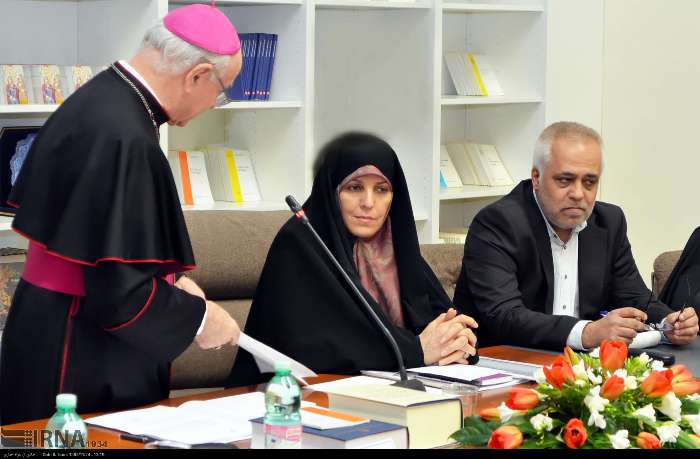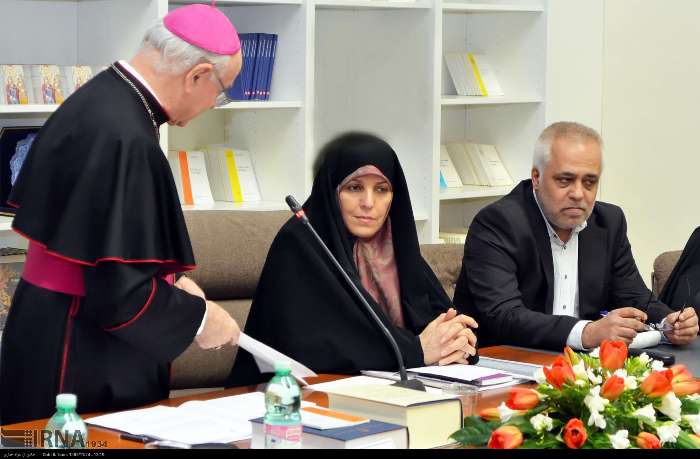 Iran's VP for Women and Family Affairs, Shahindokht Molaverdi meets with a delegation of the Pontifical Council for the Family in Vatican on Feb. 13, 2015.[/caption]
Iran's VP for Women and Family Affairs, Shahindokht Molaverdi meets with a delegation of the Pontifical Council for the Family in Vatican on Feb. 13, 2015.[/caption]The Iranian vice president spoke to AsiaNews about the status of women in her country. Iranian women are in a better position than those of other Islamic nations of the area in terms of education, university enrolment and health. In Iran, efforts are being made to boost women's participation and representation in politics and the economy.
Vatican City (AsiaNews) - "Since the 1979 revolution, Iranian women have made great strides and are in many respects better off than their counterparts in other Muslim countries in the region. However, their work is not done yet; they still have a long journey ahead," said Shahindokht Molaverdi, vice president of the Islamic Republic of Iran for Women and Family Participation Affairs.
Ms Molaverdi spoke to�AsiaNews�after she was in the Vatican for a�meeting�with a delegation of the Pontifical Council for the Family. On the same occasion, Iran's vice president also met with Pope Francis in a private audience. Later she spoke with reporters.
During the press briefing, she noted that Iran's female population stands out in the education field. "There is no comparison with other Muslim countries in the region in terms of education, university enrolment and percentage of graduates. At present, 60 per cent of university students are women. Half of all educated people are women."
Such a good literacy level also has positive effects on health. "Women's well-being is better than in other countries," Ms Molaverdi told�AsiaNews.
However, "When it comes to participation in the economy, the journey is still long," the vice president explained. "The same goes for income. For the same job, women earn less than men."
One of the most important points of the current government's programme "is to increase the presence of women in politics and decision-making positions," she said. "Our goal is to give women access to the economic and policies resources they are entitled to and deserve. For now, we plan to increase by 10 per cent the number of women in senior positions each year."
Likewise, "We are looking for ways to make sure that more women run in the upcoming parliamentary elections, through quotas for example," she said. "This way, women now constitute 27-30 per cent of all Members of Parliament in Afghanistan. In Iraq, they are 35 per cent."
"However, quotas are not the only way forward," she added. "We are studying other ways to reach the same goal. One would be for parties to have more women leaders or have more of them run for office in the country's various elections."
By Asia News











